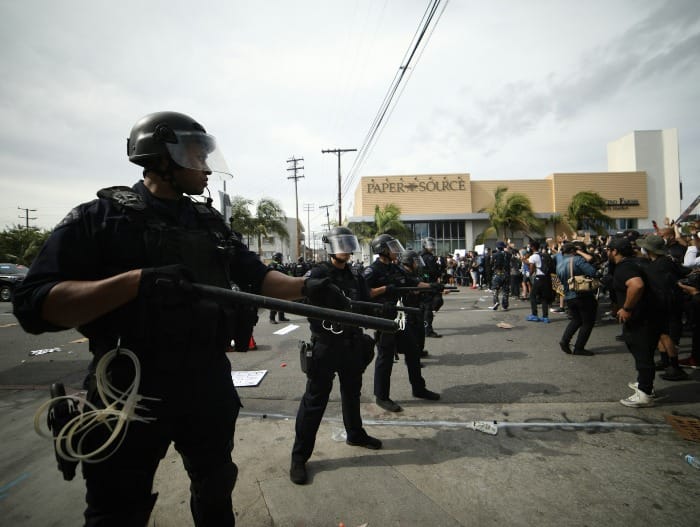Police: Reform or Defund?
The Black Lives Matter movement began with calls for police reform, but the narrative shifted to "defund the police," losing the original message. As both a veteran and the child of a police officer, I’ve seen firsthand why defunding isn’t the answer.

At the beginning of the Black Lives Movement, black leaders started the protest to reform the police, which means making changes or restructuring to improve it. But somewhere or sometime later during the protests, the narrative changes to defund, meaning to withdraw financial support from, especially through legislative control.
For a long time, the message from black culture has been misconstrued several times from its foundational message to something that benefits someone else's agenda. In this case, it is one of the times the message co-opts another agenda, and the main message becomes watered down. The black culture and low-poverty communities are no strangers to police brutality and incidents. As an officer kid and military veteran, I see a need for reform in our country's police department. But I'm afraid I have to disagree with defunding police departments.
If anything, I believe they need more resources and income to help tackle the everyday stress and cultural changes within our country's borders. In my opinion, there should be a cultural and national background check during the newcomers' in-process for any new or transfer officer to all departments. Also, I feel that there should be some mindfulness practice to help with the stress police encounter during their work life. Our nation's soldiers must do these things when being processed into a new station or department in-state and out of the country. So, if this works for our soldiers, why is this requirement not implemented for our police officers?
Most of our nation's problems come from being disconnected, unformed, or uneducated about the social climate or culture being experienced. As a cop kid, I had the chance to experience what type of stress a family goes under, knowing there’s a chance that our loved ones may not make it back. Also, you watch them experience the unfairness that goes on when their cultural values are not being heard in their line of work.
As a child, seeing this firsthand, I experienced what my stepfather and men like him had to endure because of their cultural difference in a system that does not recognize and understand their cultural background. It becomes a challenging task. Afterward, after a long day at work, they would have to battle with explaining to their people why there is a need for police officers, only to hear them say how they can’t trust the police due to systematic bias. I am grateful that my stepfather was able to retire and share some of his ups and downs with me because it gives me a better appreciation and understanding of what someone in his position goes through.
Somehow, we as a country develop this one-fit method in a mixed-community system. The idea of one-fit wonder has crippled our nation tremendously, in my opinion. Promoting the ideal of defending the police is something that the Black Lives or Black community did not believe in at the beginning of this movement, and I believe it is still not what they believe in now.
Reforming the structure of the police system is what needs to be pushed and looked into in order to promote better communication and safety for both the police officers and the community that they serve. If, as a nation, we can create a better way to communicate and develop more workable solutions to work on and towards, maybe our violence and protests will decrease.




Comments ()